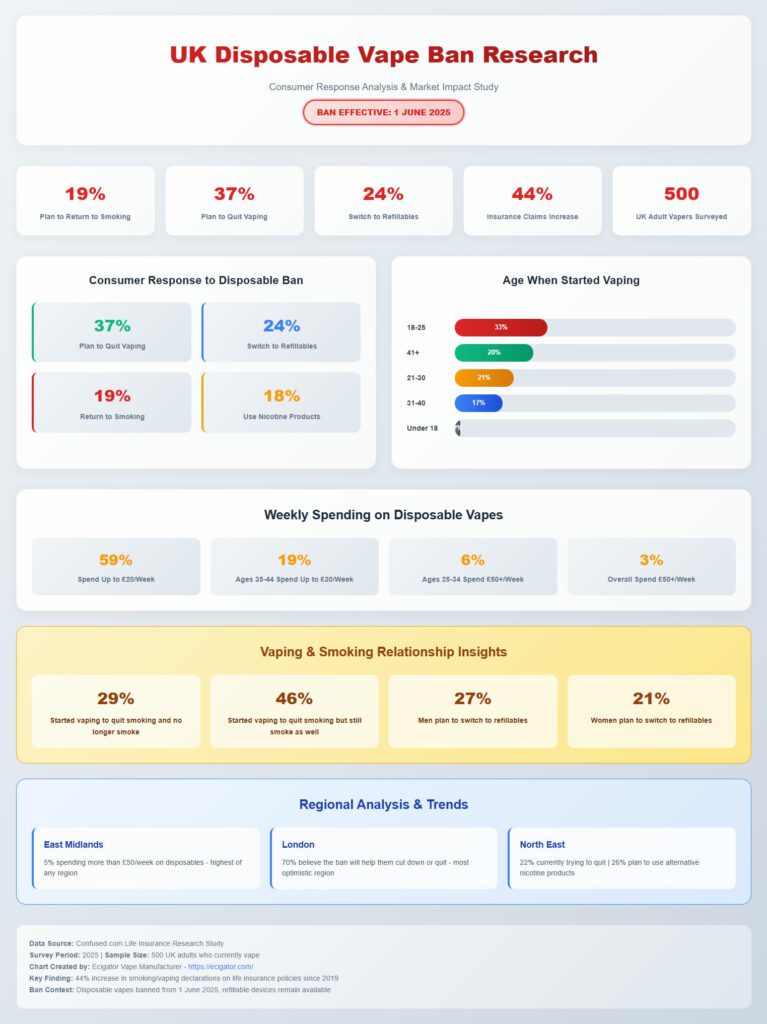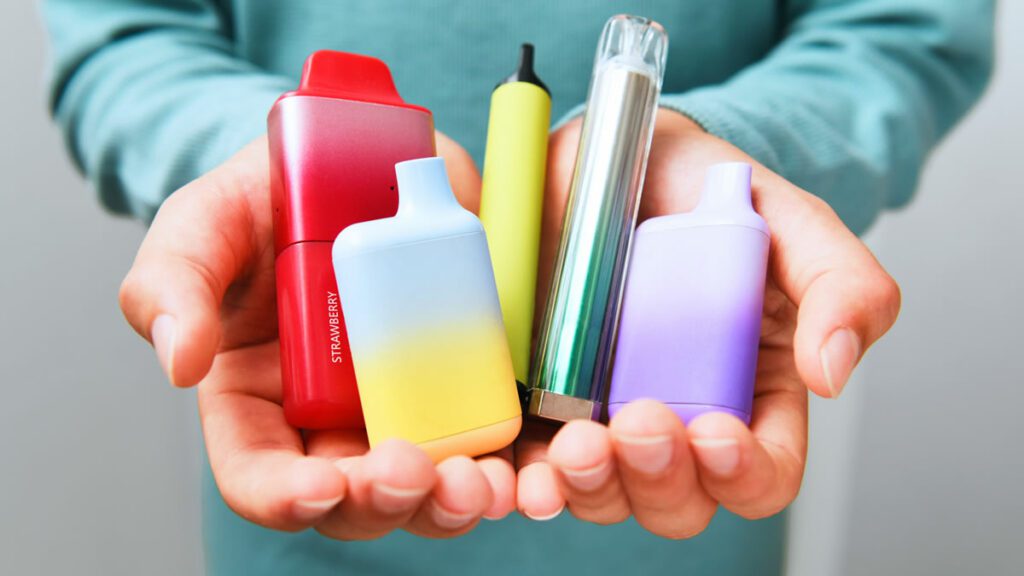As the UK prepares for the ban on disposable vapes, effective June 1st, new research from life insurance experts Confused indicates a concerning potential outcome: nearly one in five (19%) current vapers say they will return to smoking traditional cigarettes. The study, based on 500 UK adults who vape, sheds light on how consumers plan to adapt to the upcoming legislative change, revealing a mix of intentions including quitting, switching to alternatives, and unfortunately, relapsing to smoking.
While a significant portion of vapers (37%) plan to quit vaping altogether when the ban comes into force, with 18% of those intending to use other nicotine replacement products to help them, a larger group intends to continue vaping in some form or revert to smoking. Almost one in four (24%) respondents claim the ban on disposables will encourage them to switch to refillable vape devices, which remain legal.
The research also provided insights into current vaping habits and spending. Around three in five (59%) vapers spend up to £20 per week on disposables, while a small percentage (3%) spend over £50. The 35-44 age group reported the highest spending on disposables, with nearly 19% spending up to £30 weekly. The 25-34 age group had the highest percentage (6%) spending over £50 per week.
Regarding initiation, one in three vapers (33%) started between the ages of 18-25, making it the most popular starting age for both men and women. The study also noted a 44% increase since 2019 in the number of people declaring they smoke or vape on their life insurance policies, suggesting a rising trend in overall nicotine use. While nearly three in ten (29%) vapers started to quit smoking and no longer smoke, a larger group (46%) started for the same reason but continue to smoke as well (dual use).
The regional data showed some variations. For instance, 5% of people in the East Midlands spend over £50 per week on disposables, the highest of any region. Londoners were most optimistic about the ban's impact, with 70% believing it will help them cut down or quit. In the North East, over one in five (22%) are currently trying to quit, and 26% plan to switch to alternative nicotine products to stop vaping for good post-ban – the highest regional percentage for this intention.

The findings underscore a potential public health challenge: while the disposable vape ban aims to curb youth uptake and environmental waste, a significant minority of adult vapers may revert to more harmful combustible cigarettes if not adequately supported in switching to other less harmful alternatives or quitting nicotine altogether.

Vape Content Creator | Flavor Reviewer | Lifestyle & Vape Culture Editor
Emily Carter is a vape-focused content creator specializing in flavor reviews, device aesthetics, and lifestyle-oriented vaping content. With hands-on experience testing disposable vapes and pod systems, Emily delivers clear, visually driven insights designed for adult consumers.








